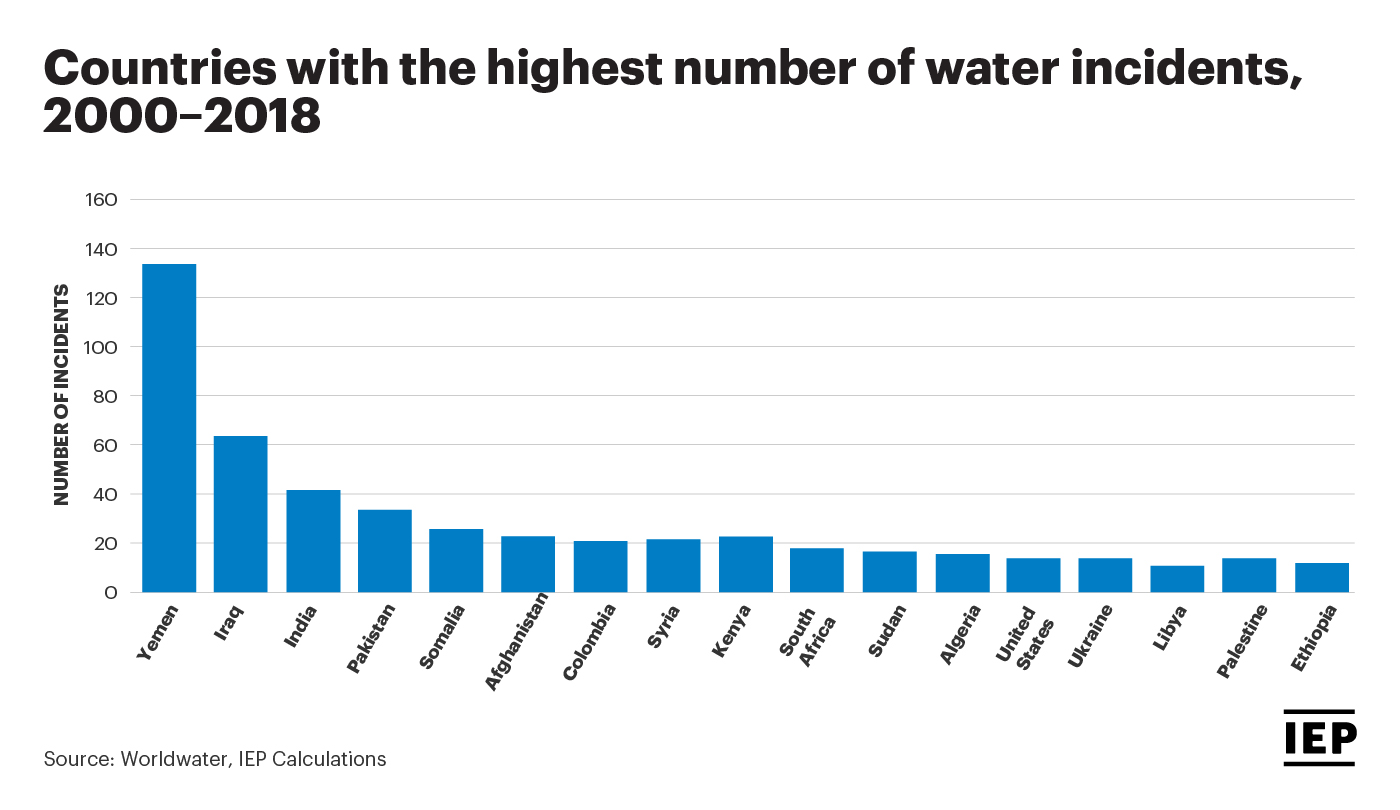A look at how the Covid-19 pandemic intensified the ongoing humanitarian crisis in Yemen, through the lens of Positive Peace.
Since 2015, ongoing conflict in Yemen has led to what the United Nations (UN) describes as the “worst humanitarian crisis in the world.” Armed conflict resulted in the displacement of millions, caused a deep economic crisis and led to a widespread food insecurity crisis.
More than 80 per cent of the country’s population is at risk of hunger and disease. The COVID-19 pandemic is set to exacerbate the humanitarian crisis, with some estimates predicting 17 million people are in need of humanitarian assistance. This represents the largest food insecure population in the world.
According to the 2020 Ecological Threat Register (ETR), Yemen is considered a resource scarcity hotspot, facing high exposure to all three resource depletion indicators measured in the ETR — water stress, food security and population growth — and with low resilience to respond to such threats.
Heavy rains and intense floods have disrupted access to safe drinking water and sanitation services, creating ideal conditions for the spread of water-borne diseases, namely cholera and dengue fever.
Ongoing conflict and ecological threats led to widespread displacement across Yemen. Since 2015, over 3.4 million new displacements were recorded as a result of conflict, while disasters, mainly floods, resulted in 177,000 new displacements.

Since 2000, the majority of water incidents have taken place in Yemen, Iraq and India. All three countries suffer from high or extreme water stress and are among the least peaceful countries in 2020, as measured by the Global Peace Index.
The COVID-19 pandemic will intensify the impacts of the ongoing conflict and recurring ecological threats in Yemen. These can be categorised by fragilities in the Positive Peace Pillars:
The ongoing civil war fought between the Saudi-backed Yemeni government and Houthi armed movement, along with their allies, has meant that no central government is in charge, making the COVID-19 pandemic much harder to contain.
This weakness in the Well-Functioning Government Pillar interacts with deficiencies in Free Flow of Information, as reporting on case numbers vary widely between government and rebel-held areas.
This has made it difficult for aid organizations to understand the level of disease transmission and prepare accordingly.
Yemen’s health care system was already under stress following years of conflict and outbreaks of communicable diseases, such as cholera. Many healthcare facilities have been destroyed by airstrikes and shelling and the country also has a shortage of healthcare workers.
With the onset of the COVID-19 pandemic, the rise in case numbers and limited supply of medical equipment has led to the effective collapse of Yemen’s health care system.
Prior to the conflict, Yemen was primarily dependent on food imports with only around 25 per cent of food being produced domestically.
Food affordability is a critical concern to households, as pre-existing global food price increases and currency depreciation interact with COVID-19 related trade restrictions.
Remittances, which play a critical role in the economy, have been substantially reduced and other income is expected to decline further as COVID-19 disruptions affect businesses.
Food imports and remittances were examples of Good Relations with Neighbours dynamics mitigating the weakness in Sound Business Environment. But it is difficult to predict how this systemic interaction will behave in a post-pandemic world.
According to the ETR, countries that face a high number of ecological threats and do not have the socio-economic resilience to meet them will find it particularly difficult to protect their populations and economic infrastructure.
These are nations that combine high numbers of threats, low or very low levels of Positive Peace and an inability to improve Positive Peace meaningfully. Over one billion people that live in these hotspots are particularly vulnerable to ecological threats.
The 31 hotspot countries include Afghanistan, Syria, Iraq, Pakistan, Chad, Tajikistan and Yemen. These countries have very low resilience and are already experiencing adverse effects from ongoing conflict and the COVID-19 pandemic.
Without strong improvements in Positive Peace, the lack of coping capacity in these countries could lead to worsening food insecurity, civil unrest, mass displacement and competition over resources.